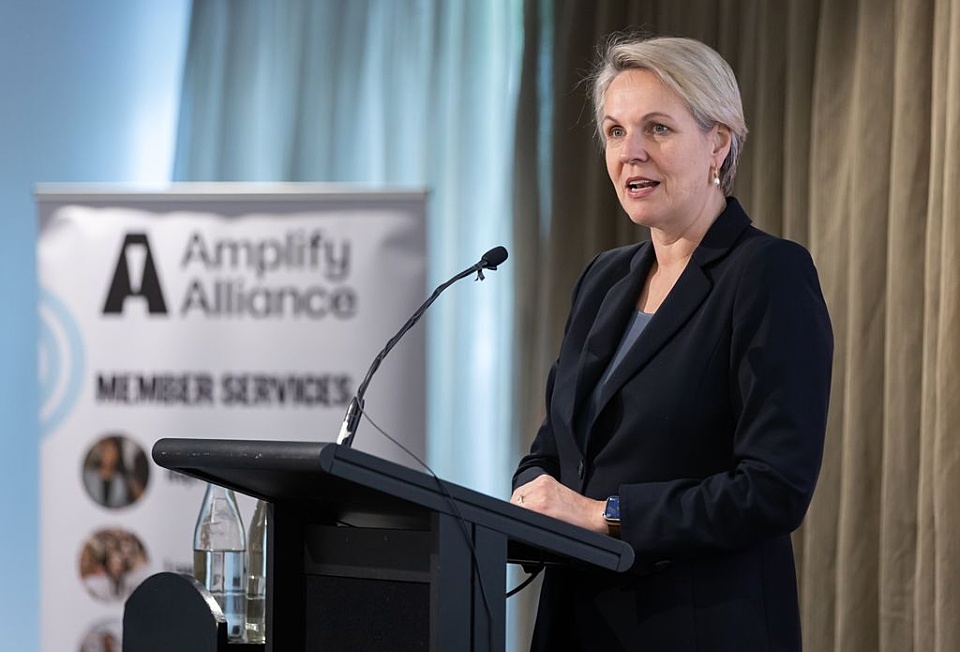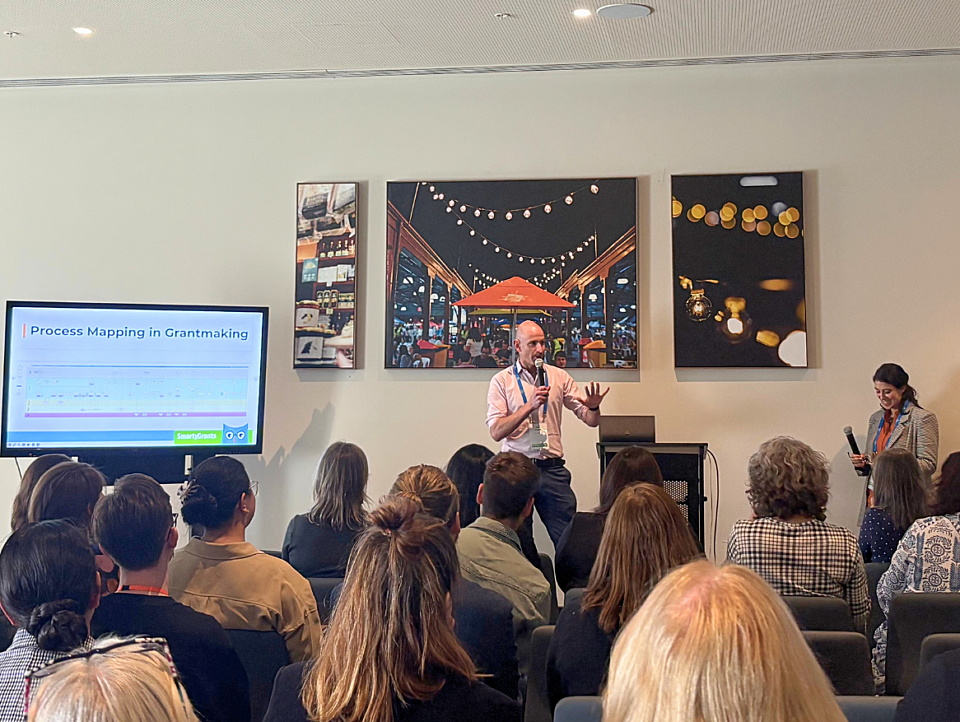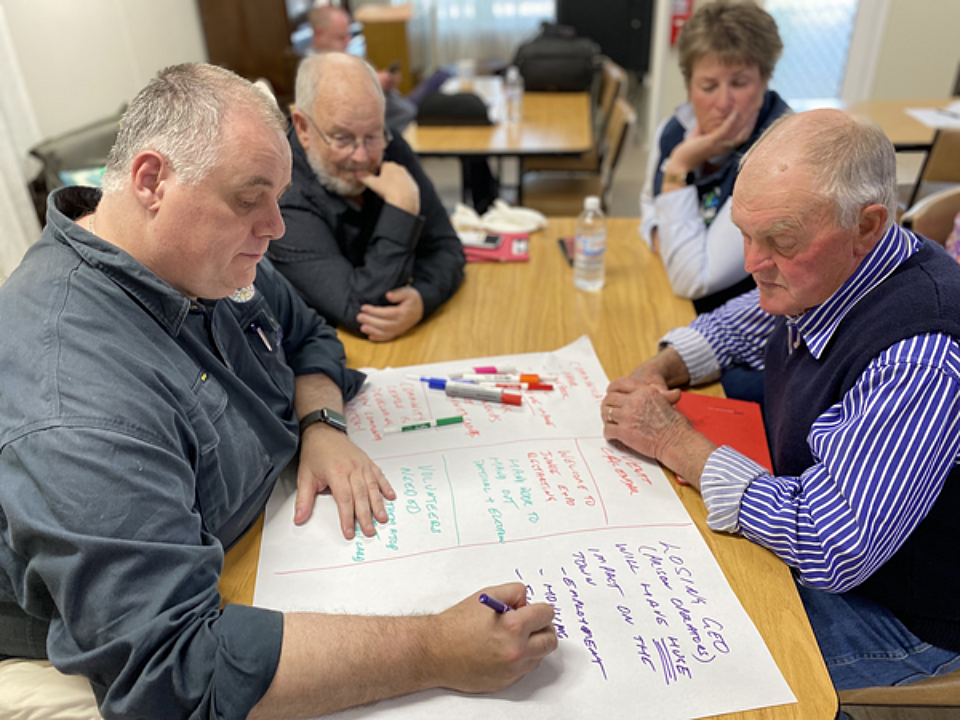
Feds flag human services grants shakeup
Posted on 15 Dec 2025
The federal government is trialling longer-term contracts for not-for-profits that deliver…
Posted on 06 Mar 2025
By Matthew Schulz journalist, SmartyGrants


The federal government has launched a long-awaited “grants engagement framework” and commitments to work better with community service organisations.
A rating system developed by UK foundations offers valuable insights into how grantmakers around the world can improve governance, accountability and equity.
One of the main commitments will see the government increase grant payments in line with rising wages, where programs are linked to wage cost indexes. The government has already budgeted an extra $4 billion to cover these increased costs.
Describing the Community Sector Grants Engagement Framework as a “commitment to strengthen and support community sector organisations”, the government promised a refreshed, collaborative approach.

The framework is accompanied by a “Ways of Working” statement outlining government promises to be more collaborative, transparent, innovative and outcomes-focused when working with community organisations.
The government said the framework changes would include:
The Foundation Practice Rating project has assessed more than 100 UK charitable foundations across more than 100 criteria in a push to increase transparency, fairness, and trust in the foundation system, which distributes more than £6.4 billion a year, about $12.1 million in Australian dollars.
For its 2024–25 annual report, the project – which was initiated by the Friend Provident Foundation and is carried out by independent evaluators – assessed foundations in terms of diversity, accountability and transparency, scoring each with a rating from A to D.
The report found foundations were weakest in measures of diversity, with 44% of organisations scoring the lowest “D” rating and none at all winning an “A” rating.
Foundations were strongest in transparency, where 64% scored an “A” rating.
Foundations scored a relatively equal spread of Bs (33%), Cs (28%) and Ds (29%) for their accountability.
“There may be some benefits for organisations contracted by the Department of Social Services, and the document has many good intentions, but I don't think it is a game changer.”
“Quite often we are keen to evaluate the effectiveness of grantee programmes and are concerned about the rigour of those assessments. The FPR suggests that we are less rigorous with evaluating our own work and seeking feedback.”
The government said the changes would help community sector organisations “better plan their service delivery, retain and develop their workforce, and have more time to put towards delivering the best outcomes for Australians who use their services”.
Grantmakers were advised that this framework would work “in parallel” with the existing Australian Government Grants Framework and Commonwealth Grants Rules and Principles.

The framework was announced in a joint statement by the Minister for Social Services and National Disability Insurance Scheme (NDIS), Amanda Rishworth, and the Minister for the Public Service and Government Services, Katy Gallagher.
Rishworth said the framework would reset the relationship with the community sector “after a decade of Coalition neglect” and was developed in close consultation with the sector through a Community Services Advisory Group.
The Department of Social Services (DSS) and the advisory group received 237 submissions in generating an issues paper last year. Drawing on the paper’s findings, the framework acknowledged ongoing challenges faced by the sector, including:
Gallagher said that by giving community sector organisations the tools they need to succeed, they can do what they do best – supporting and giving back to Australian communities.
“Unlike the former Coalition government, who treated the community sector as an afterthought and left funding to run dry, we’re working hand in hand with the sector to create safer, fairer, and more supportive communities.”
The Community Council for Australia’s chief executive David Crosbie welcomed the changes to indexation and benefits for organisations contracted by government but said there were few new commitments from the Department of Social Services.
“There may be some benefits for organisations contracted by the Department of Social Services, and the document has many good intentions, but I don't think it is a game changer”, Crosbie said.
Mission Australia executive Marion Bennett welcomed the new framework.
“These are important signals that the Government understands that the community sector is an essential part of Australia's society and economy, employing around 10% of the nation's workforce, having a collective turnover of more than $190 billion each year, supporting our most vulnerable people and building community strength and cohesion,” Bennett told supporters on LinkedIn.
Despite the fact that transparency was the strongest suit of foundations, 21 foundations did not have a website, while many others had sites that were “limited” or hard to navigate.
Just seven out of 100 foundations published a detailed analysis of how effective they had been.

Friends Provident Foundation director Danielle Walker Palmour told Grants Management Intelligence that diversity had “proven the trickiest” quality for foundations to improve, and in fact it had worsened since the last study a year earlier.
“We were a bit surprised that performance on diversity was not improved, given the first foundation to score an A in diversity (and overall) occurred last year. Our hope is by providing clear examples of good practice, performance in key domains will improve.”
Foundations in the UK appear largely pale, male and stale. The most recent assessment in England and Wales found that 90% of trustees of foundations were white, 60% were over 65 years of age, and men outnumbered women two to one.
Palmour said the report’s diversity assessment looked not only at trustees, but at foundations more broadly.
“By diversity the FPR includes disclosures about the makeup – in terms of ethnicity, gender and disability – of those that make decisions and deal with applicants: staff and trustees.
“It also includes accessibility of websites – quite often our shop windows as funders – to those who may have difficulty using screens.”
She stressed that the rating system was produced to assist potential grant applicants.

“This is not a question of virtue-signalling or political correctness. The point of this domain in the rating system is about giving applicants key information about the makeup of those taking decisions that may affect their lives and livelihoods, and the ability of a range of people to access what is sometimes the only information available”.
Palmour also said that foundations could improve the assessment of their funding effectiveness.
“Quite often we are keen to evaluate the effectiveness of grantee programmes and are concerned about the rigour of those assessments. The FPR suggests that we are less rigorous with evaluating our own work and seeking feedback.”
Palmour said transparency was the most important metric.
“Transparency is the medium through which all the other domains are mediated – if there is no transparency of practices, then we really cannot know anything else about the foundation. Caroline Fiennes, who leads our research efforts, is a physicist by training. She likens our efforts – and those of applicants – to those of astronomers: we can only understand what is going on inside stars (or foundations) from the light that comes out.”

Posted on 15 Dec 2025
The federal government is trialling longer-term contracts for not-for-profits that deliver…

Posted on 15 Dec 2025
A Queensland audit has made a string of critical findings about the handling of grants in a $330…

Posted on 15 Dec 2025
The federal government’s recent reforms to the Commonwealth procurement rules (CPRs) mark a pivotal…

Posted on 15 Dec 2025
With billions of dollars at stake – including vast sums being allocated by governments –grantmakers…

Posted on 15 Dec 2025
Nearly 100 grantmakers converged on Melbourne recently to address the big issues facing the…

Posted on 10 Dec 2025
Just one-in-four not-for-profits feels financially sustainable, according to a new survey by the…

Posted on 10 Dec 2025
The Foundation for Rural & Regional Renewal (FRRR) has released a new free data tool to offer…

Posted on 10 Dec 2025
A major new report says a cohesive, national, all-governments strategy is required to ensure better…

Posted on 08 Dec 2025
A pioneering welfare effort that helps solo mums into self-employment, a First Nations-led impact…

Posted on 24 Nov 2025
The deployment of third-party grant assessors can reduce the risks to funders of corruption,…

Posted on 21 Oct 2025
An artificial intelligence tool to help not-for-profits and charities craft stronger grant…

Posted on 21 Oct 2025
Artificial intelligence (AI) is becoming an essential tool for not-for-profits seeking to win…

Posted on 15 Dec 2025
The federal government is trialling longer-term contracts for not-for-profits that deliver…

Posted on 15 Dec 2025
A Queensland audit has made a string of critical findings about the handling of grants in a $330…

Posted on 15 Dec 2025
The federal government’s recent reforms to the Commonwealth procurement rules (CPRs) mark a pivotal…

Posted on 15 Dec 2025
With billions of dollars at stake – including vast sums being allocated by governments –grantmakers…

Posted on 15 Dec 2025
Nearly 100 grantmakers converged on Melbourne recently to address the big issues facing the…

Posted on 10 Dec 2025
Just one-in-four not-for-profits feels financially sustainable, according to a new survey by the…

Posted on 10 Dec 2025
The Foundation for Rural & Regional Renewal (FRRR) has released a new free data tool to offer…

Posted on 10 Dec 2025
A major new report says a cohesive, national, all-governments strategy is required to ensure better…

Posted on 08 Dec 2025
A pioneering welfare effort that helps solo mums into self-employment, a First Nations-led impact…

Posted on 24 Nov 2025
The deployment of third-party grant assessors can reduce the risks to funders of corruption,…

Posted on 21 Oct 2025
An artificial intelligence tool to help not-for-profits and charities craft stronger grant…

Posted on 21 Oct 2025
Artificial intelligence (AI) is becoming an essential tool for not-for-profits seeking to win…